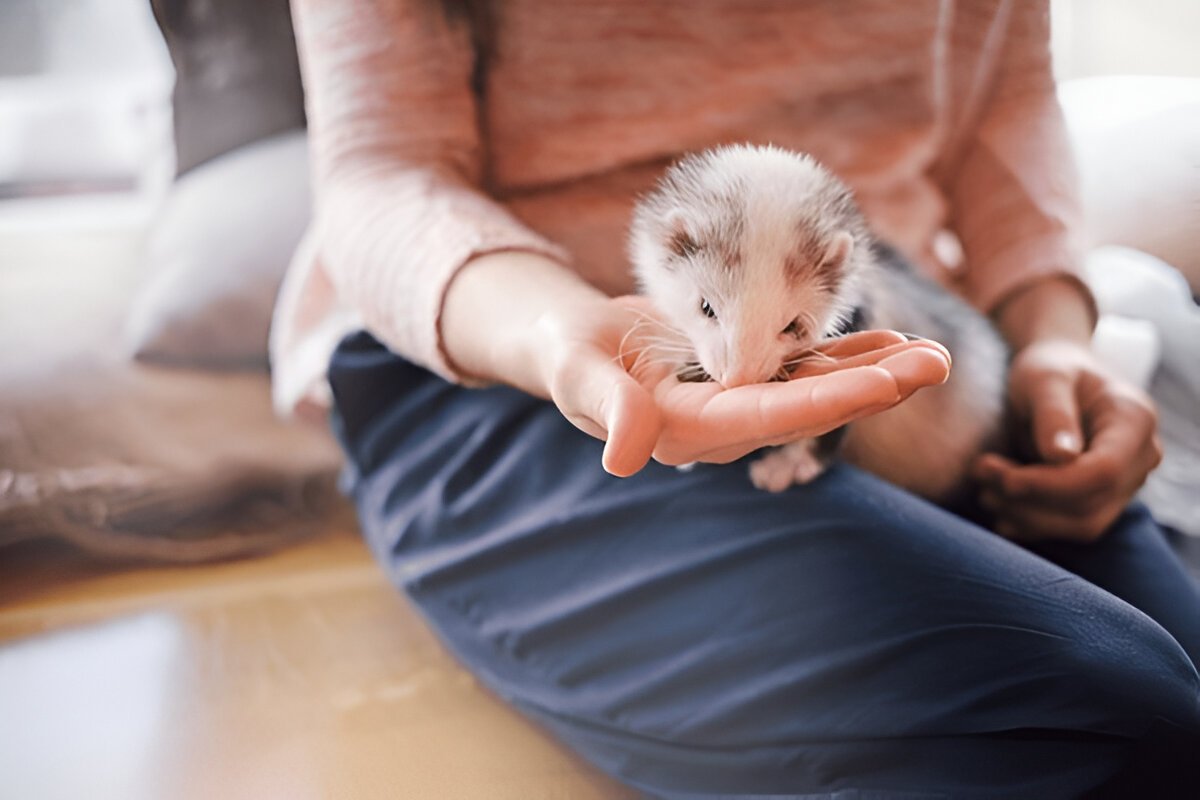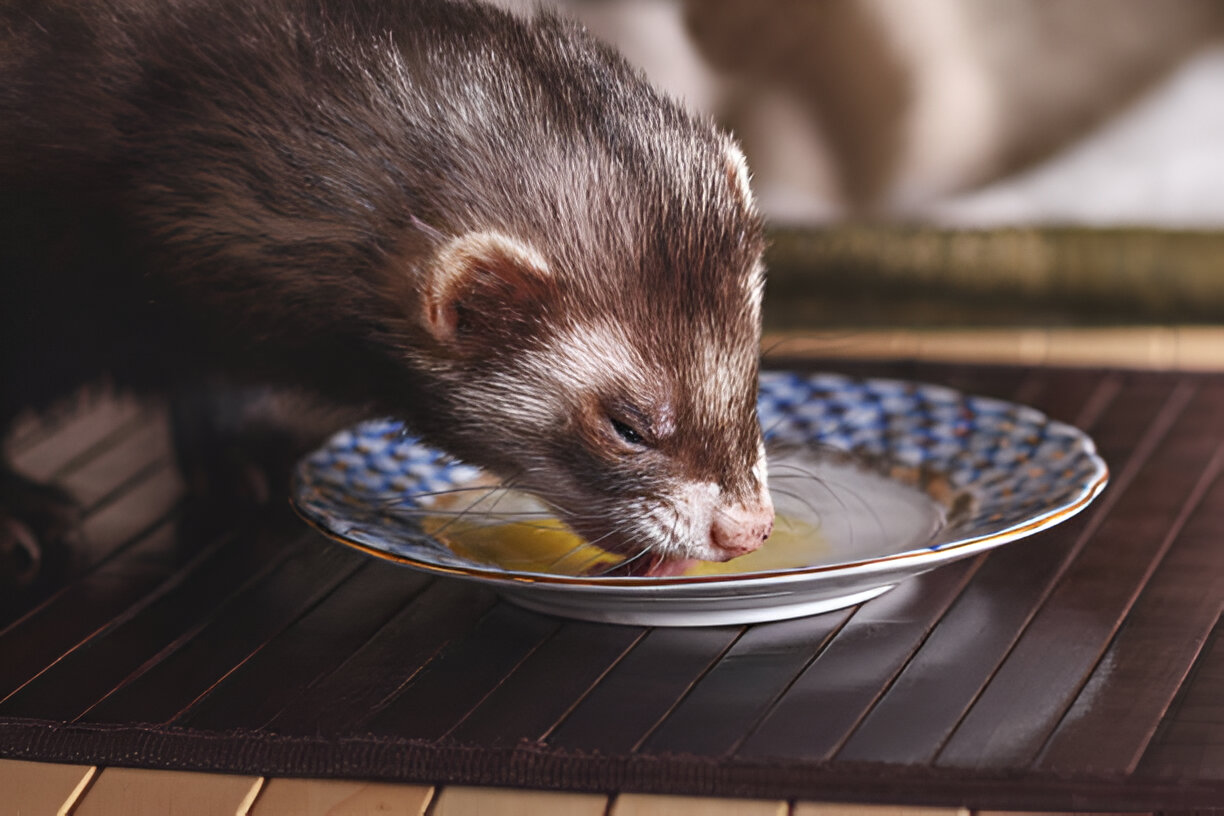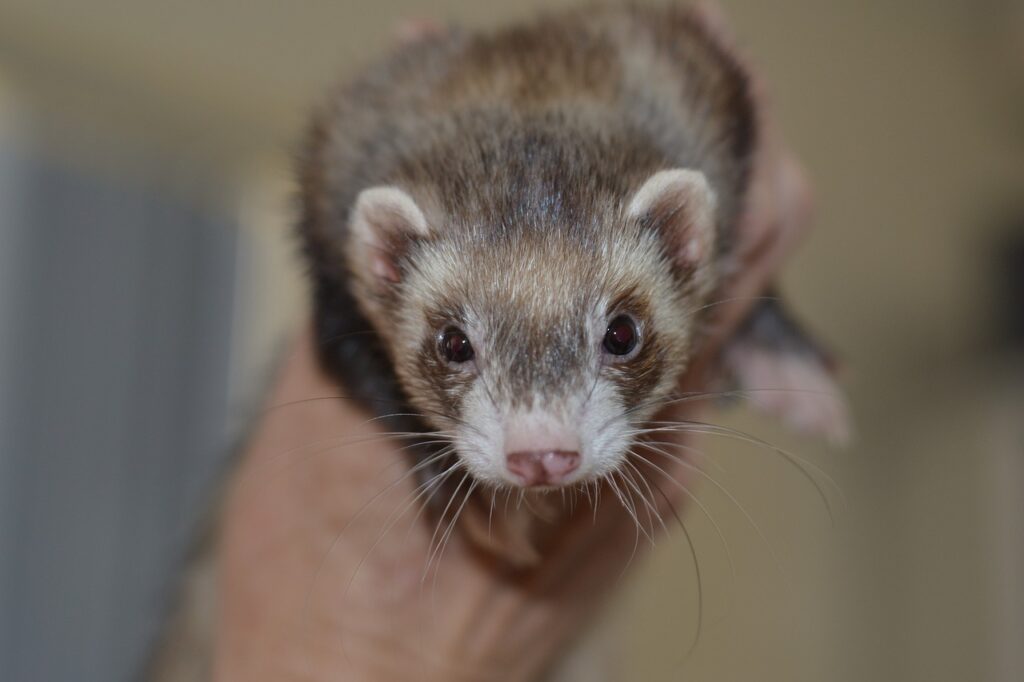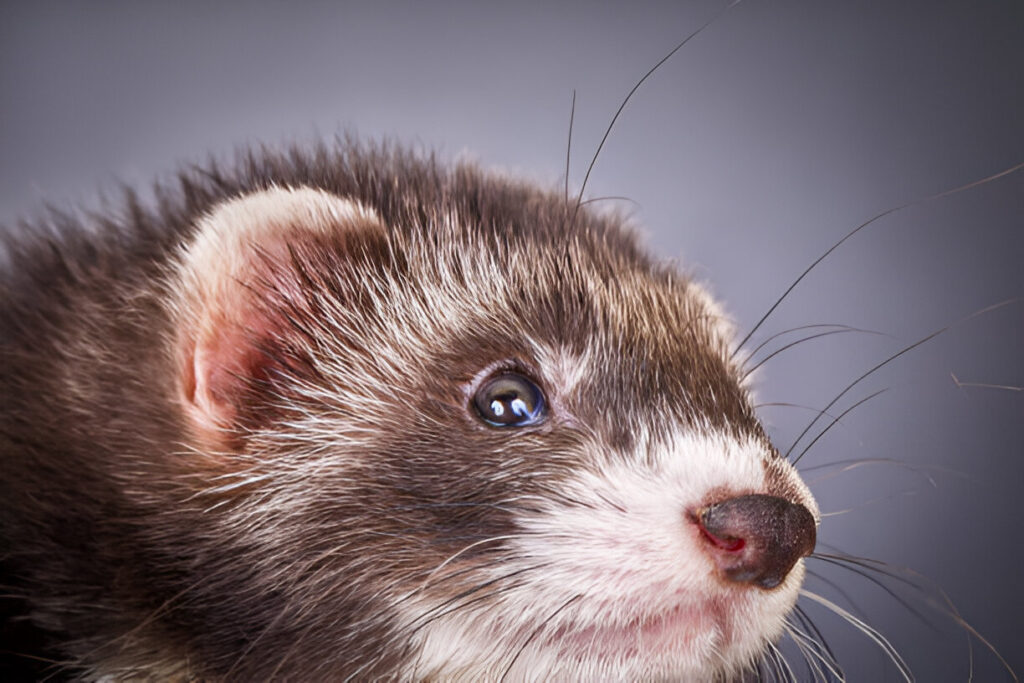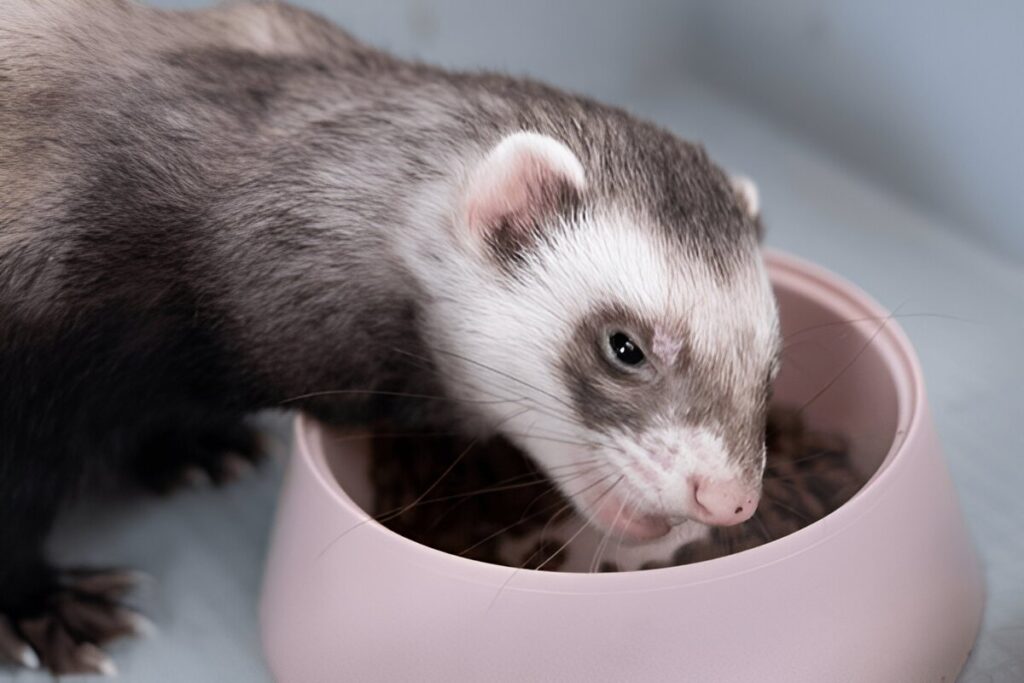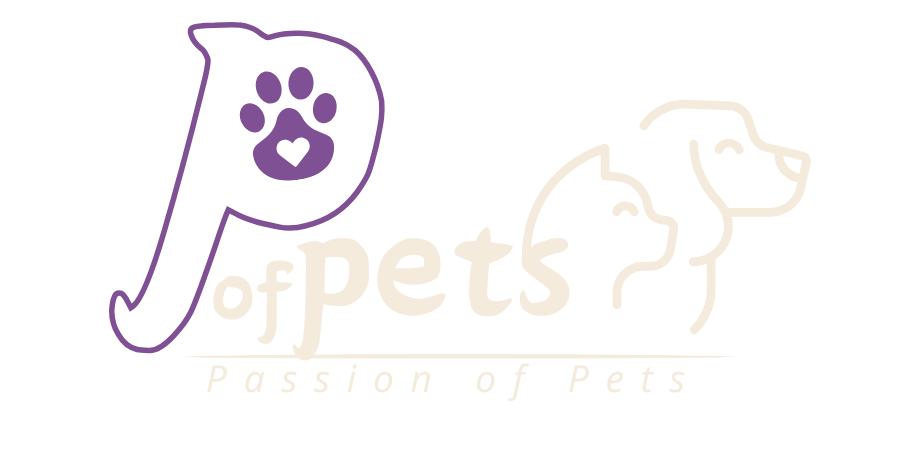Introduction
What Does a Ferret Eat? A Complete Guide to a Healthy Diet
Ferrets are obligate carnivores, meaning their diet must be rich in animal protein and fat to support their high metabolism. Providing proper nutrition is crucial for their health, longevity, and overall well-being. In this guide, we’ll explore what a ferret eats, including recommended foods, dietary supplements, and feeding tips.
Understanding a Ferret’s Nutritional Needs
Ferrets are very different animals from cats and dogs and therefore have very specialized dietary needs. As obligate carnivores, they do best on a diet that is predominantly animal-based in proteins and fats. Meeting the particular nutritional requirements of ferrets is essential in the long-term maintenance of their health, including sustaining their energy levels and their overall well-being.
High Protein 30–40% – Principally from Meat
The mainstay of a ferret diet is protein. The small but highly active animals require at least 30-40% protein in their feed; the protein source should be high-quality and sourced from animal products such as chicken, turkey, lamb, or beef. Whole-prey options, like feeder mice or raw diets, are closer to what the ferrets would eat in the wild and offer an optimal balance of nutrients.
Processed food containing plant-based proteins, like soy or pea protein, should be avoided because ferrets lack the enzymes to properly digest and absorb the nutrient across the gut wall. A diet with too much low-quality protein can result in malnutrition, poor coat health, and digestive problems.
High Fat (15–20%) – Provides Energy for Their Active Lifestyle
Fat is the ferret’s primary source of energy. Unlike humans or other omnivorous pets, fat is required in their system to keep up with their high metabolism and playful behavior. A diet containing 15–20% fat gives them the appropriate amount of energy to be up and running around all day. Good sources of fat include chicken fat, fish oil, and animal-based lard. These also support good skin and a shiny coat.
However, too much fat must also be avoided, as this would lead to obesity in less active ferrets. Feeding them a balanced diet, along with regular play and exercise, will keep them at an appropriate weight.
Low Carbohydrates and Fiber – Not for Ferret Digestive Systems
Ferrets have a short, simple digestive tract that does not support digestion of carbohydrates or fiber very well. Food high in grains, vegetables, fruits, or fiber can lead to gastrointestinal upset, bloating, and even serious long-term issues such as insulinoma, the most common pancreatic disease of ferrets, brought on by too much carbohydrate consumption.
For this reason, dry kibble formulated for cats or dogs is generally unsuitable unless specifically designed for ferrets, as many pet foods contain grains and fillers such as corn, rice, or peas. Instead, choose high-quality ferret-specific diets that focus on meat-based ingredients and minimize plant material.
Other Dietary Concerns
- Water Intake: Ferrets need access to water at all times, as hydration and digestion are at stake.
- Taurine: An amino acid vital for heart and eyes, taurine is naturally found in meat and should be introduced into the ferret diet.
- Vitamin and Mineral Balance: The raw diet might need supplementation with calcium, omega fatty acids, and other vitamins for complete nutrition.
What Do Ferrets Eat? Best Food Options
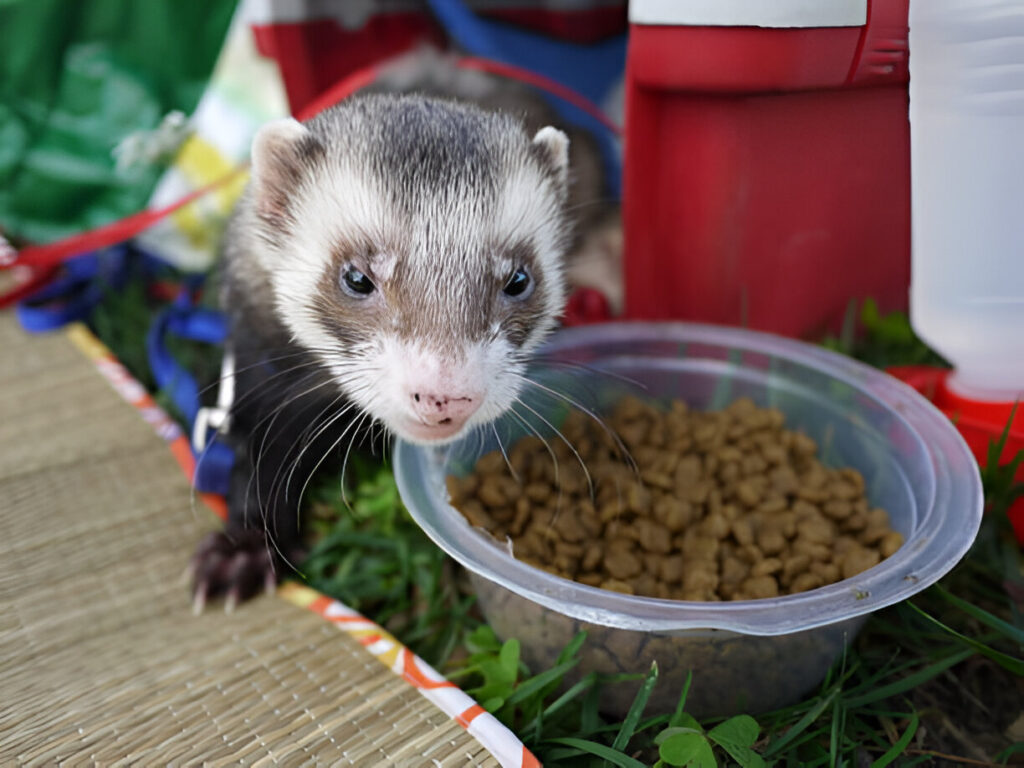
1. Raw Meat Diet (Best Option)
A raw diet closely mimics what ferrets would eat in the wild. Ideal options include:
- Chicken (breast, wings, necks, hearts, and livers)
- Turkey
- Beef (muscle meat and organs)
- Lamb
- Rabbit
- Poultry organs (liver, kidney, heart)
- Whole Prey (mice, rats, quail, chicks)
2. High-Quality Ferret Kibble
If raw feeding isn’t feasible, a premium ferret kibble is an alternative. Look for:
- At least 35% protein and 20% fat
- Minimal to no grains, soy, or corn
- Animal-based protein sources like chicken or turkey meal
3. Frozen and Freeze-Dried Raw Food
These are commercially available and provide balanced nutrition with convenience. Ensure they contain no artificial preservatives and are high in animal protein.
4. Eggs
Eggs are a nutritious treat and can be fed 1–2 times per week:
- Raw eggs (whole or yolk)
- Scrambled or boiled eggs (without additives)
Foods to Avoid
Feeding the wrong foods can cause severe health issues in ferrets. Avoid:
| Food Type | Why to Avoid |
|---|---|
| Fruits & Vegetables | Ferrets can’t digest fiber and carbs effectively. |
| Dairy Products | Ferrets are lactose intolerant. |
| Dog & Cat Food | Lacks necessary protein and fat. |
| Sugary & Processed Foods | Can cause insulinoma (a deadly pancreatic disease). |
| Grains (Wheat, Corn, Rice) | Hard to digest and lead to obesity. |
How Often Should You Feed a Ferret?
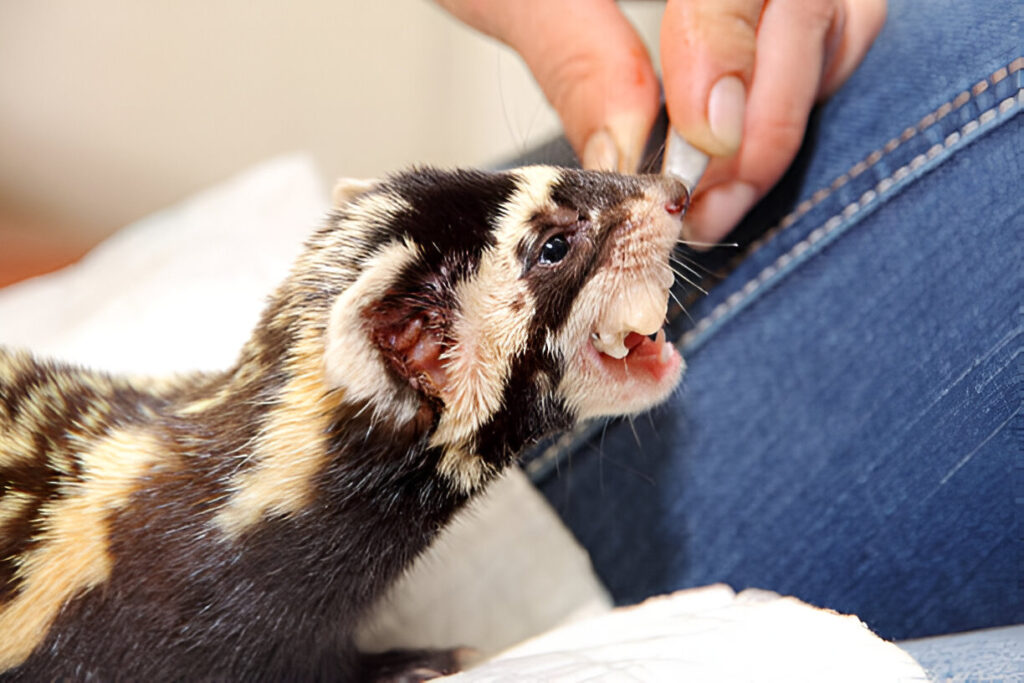
Here’s the expanded version:
Ferrets have fast metabolisms and need to be fed frequently to keep their energy up and overall health. Their digestive system is short and efficient so they need a constant flow of food throughout the day.
Kibble Diet
If you’re feeding high quality ferret kibble it should be available 24/7 (free feeding). Ferrets eat small amounts multiple times a day so unrestricted access helps prevent hunger and energy crashes. Look for kibble with at least 35-40% protein and 15-20% fat from animal sources like chicken or turkey. Avoid grain heavy formulas as ferrets are obligate carnivores and can’t digest carbohydrates.
- Example of a good kibble schedule:
- Keep fresh kibble in their bowl at all times.
- Replace uneaten food daily to keep it fresh.
- Provide fresh water always, preferably in a dish and a bottle.
Raw Diet
For those feeding raw or whole-prey, ferrets should be fed 4-6 small meals a day to mimic their natural eating habits. This diet is raw meat, organs and bones and is a biologically appropriate balance of nutrients. A common raw feeding approach is 80% muscle meat, 10% bone and 10% organs (half of which should be liver).
- Example of a raw feeding schedule:
- Morning: Chicken wings or small whole prey (e.g., mouse or quail).
- Midday: Ground turkey with bone or duck neck slices.
- Afternoon: Organ mix (liver, heart, kidney).
- Evening: Beef chunks or rabbit meat.
- Night: A mix of muscle meat and bone (e.g., chicken thighs).
Raw diets require planning to ensure nutritional balance and should always be fresh and stored properly to prevent bacterial contamination.
Treats
Treats should be given sparingly and make up no more than 10% of a ferret’s diet to avoid digestive upset and nutritional imbalances. Stick to meat based treats like freeze-dried chicken, raw egg yolk (a couple of times a week) or small amounts of cooked meats. Avoid sugary or high-carb treats like fruits, vegetables or dairy as ferrets can’t process them.
Safe treats:
✅ Freeze-dried meat (chicken, duck, turkey)
✅ Raw egg yolk (occasional)
✅ Small pieces of cooked chicken or turkey
✅ Whole prey snacks (e.g., pinky mice)
Avoid:
❌ Fruits and vegetables (ferrets can’t digest fiber)
❌ Dairy products (ferrets are lactose intolerant)
❌ Sugary treats (can cause insulinoma
Hydration: The Importance of Water
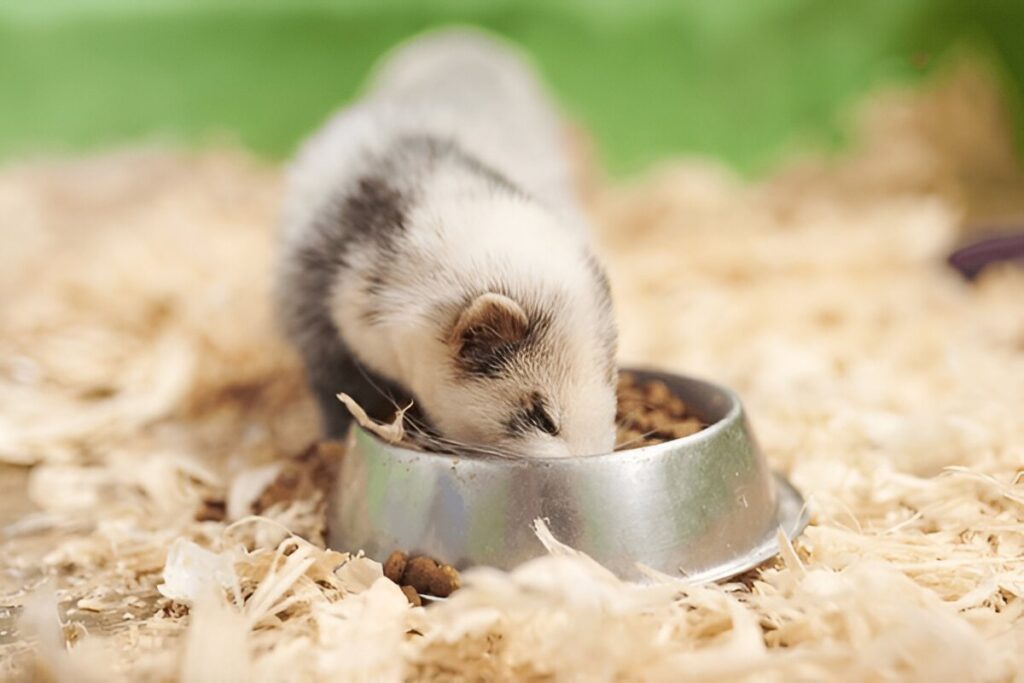
Proper hydration is necessary for a ferret’s general health and well-being. Water plays an important role in digestion, blood circulation, body temperature, and organ functionality. Since they have a very high metabolic rate and are more susceptible to dehydration, it is very important that they always have access to fresh, clean water.
Best Water Sources for Ferrets
- Heavy Ceramic Bowl (Primary Source)
A heavy, weighted ceramic bowl is the preferred water container, as it can’t be so easily tipped over like lightweight plastic bowls. Place the water bowl in a stable location in the cage or play area so that messes are avoided. Clean and change it daily to prevent accidental drops of food, bedding, and even toys into the water by the ferret.
- Water Bottle (Supplemental Only)
A water bottle with a sipper tube will work as another source of water, but not as the main one. Some ferrets just can’t seem to get enough water from a bottle because, compared with drinking from a bowl, it takes more effort for them. Also, sipper tubes may break down and start leaking or even clog.
Having a water bottle in addition to a bowl, however, offers added assurance that your ferret will have water at all times, as sometimes one source or the other may be inaccessible.
Signs of Dehydration in Ferrets
Dehydration can quickly become dangerous for ferrets. Watch for these signs:
- Lethargy or weakness
- Dry or sticky gums
- Sunken eyes
- Loss of skin elasticity (gently pinch the skin on the back—if it doesn’t snap back quickly, your ferret may be dehydrated) If you suspect dehydration, encourage your ferret to drink and consult a veterinarian immediately.
Tips for Keeping Your Ferret Hydrated
Provide fresh water daily. Stagnant water can collect bacteria, so changing it frequently is essential.
- Water: Use filtered water whenever possible. Tap water, which may have high levels of chlorine or other contaminants, can be unappealing for drinking.
- Put water in various places: If your ferret has free roam time, set up additional bowls outside of the cage.
- Monitor intake: A sudden drop in consumption may be an indication of illness and should be acted upon immediately.
Can Ferrets Eat Human Food?
Most human foods are unsafe for ferrets. However, small amounts of cooked meat (without seasoning) can be given as treats.
You can read about this here : What human food can ferrets eat
Supplementing a Ferret’s Diet
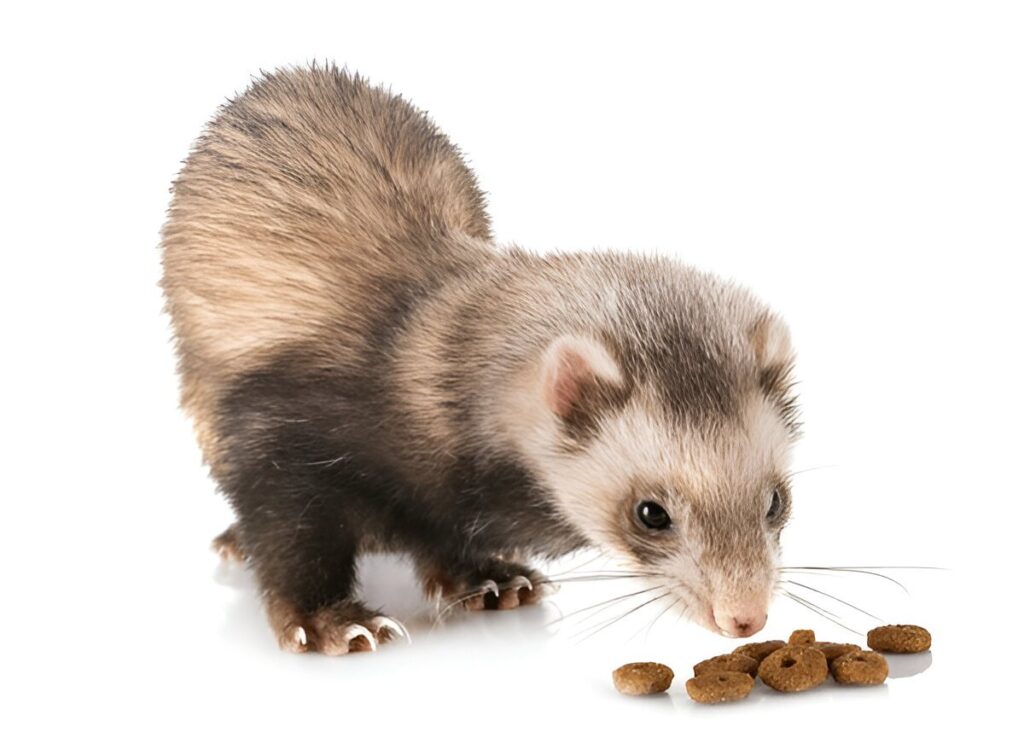
A well-balanced diet provides most of the nutrients a ferret needs, but some supplements can offer extra benefits. Whether for better coat health, digestive support, or essential nutrients missing from certain diets, the right supplements can enhance your ferret’s overall well-being.
Salmon Oil – For a Healthy Skin and Coat
Salmon oil is an excellent source of omega-3 and omega-6 fatty acids, which help in keeping the skin of a ferret moist and their fur soft and shining. It helps reduce itching and shedding and promotes joint health in aging ferrets.
- One could start off with only a few drops and gradually increase them to ½ teaspoon per day on the food-to avoid diarrhea associated with excess intake.
- Always go for high-quality, mercury-free salmon oil without any additives.
- Most of the ferrets enjoy the flavor; hence, it is an excellent treat or good distraction when performing grooming.
Taurine – Heart and Eye Health in a Nutshell
Taurine is an amino acid critical to heart function, vision, and brain health. While a raw meat diet will naturally contain taurine, kibble-based diets may be deficient due to processing.
- A taurine deficiency can lead to heart disease (dilated cardiomyopathy) and problems with the eyesight.
- If feeding kibble, consider adding a taurine supplement to make sure your ferret gets enough.
- Raw-fed ferrets do not need taurine supplementation as they generally get enough through their diet.
Probiotics – Supporting Digestion
Ferrets are sensitive, and probiotics will help to keep the gut healthy, especially after illness, courses of antibiotics, or even dietary changes.
- Probiotics foster good gut bacteria for better digestion, reducing the chance of diarrhea, bloating, and upset stomach.
- Use ferret-specified or high-quality pet probiotics rather than general human formulations.
- When mixed in small quantities with food or water, it maintains the balance within a ferret’s digestive system.
Things to Consider
- Supplements are designed to supplement-not replace-a healthy diet.
- Introduce new supplements in small steps to avoid upset stomachs.
- Consult a vet first before adding supplements, especially in the case of health conditions.
Conclusion
A good diet promises a long, healthy, and happy life for your ferret. Stay with high-protein, meat-based foods; avoid carbs and dairy; and let their meals be frequent. Have any questions about feeding your ferret?
Feel free to leave a comment below, or take a look at one of our other guides about ferret care.
Yuns Legdm is a passionate advocate for pet care and the founder of this website, dedicated to providing valuable information for fellow pet lovers and veterinary professionals worldwide. With a deep love for animals, Yuns created this platform to connect passionate pet owners with expert insights from veterinarians around the globe.
This website grows with you—the passionate pet owners and veterinary experts—creating a trusted space where knowledge, experience, and love for animals come together. Whether you’re seeking advice on pet health, nutrition, or general well-being, this platform is here to support you on your journey of responsible and loving pet care.

